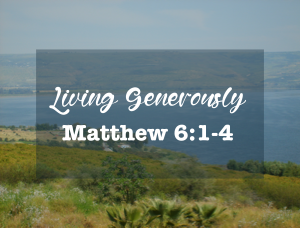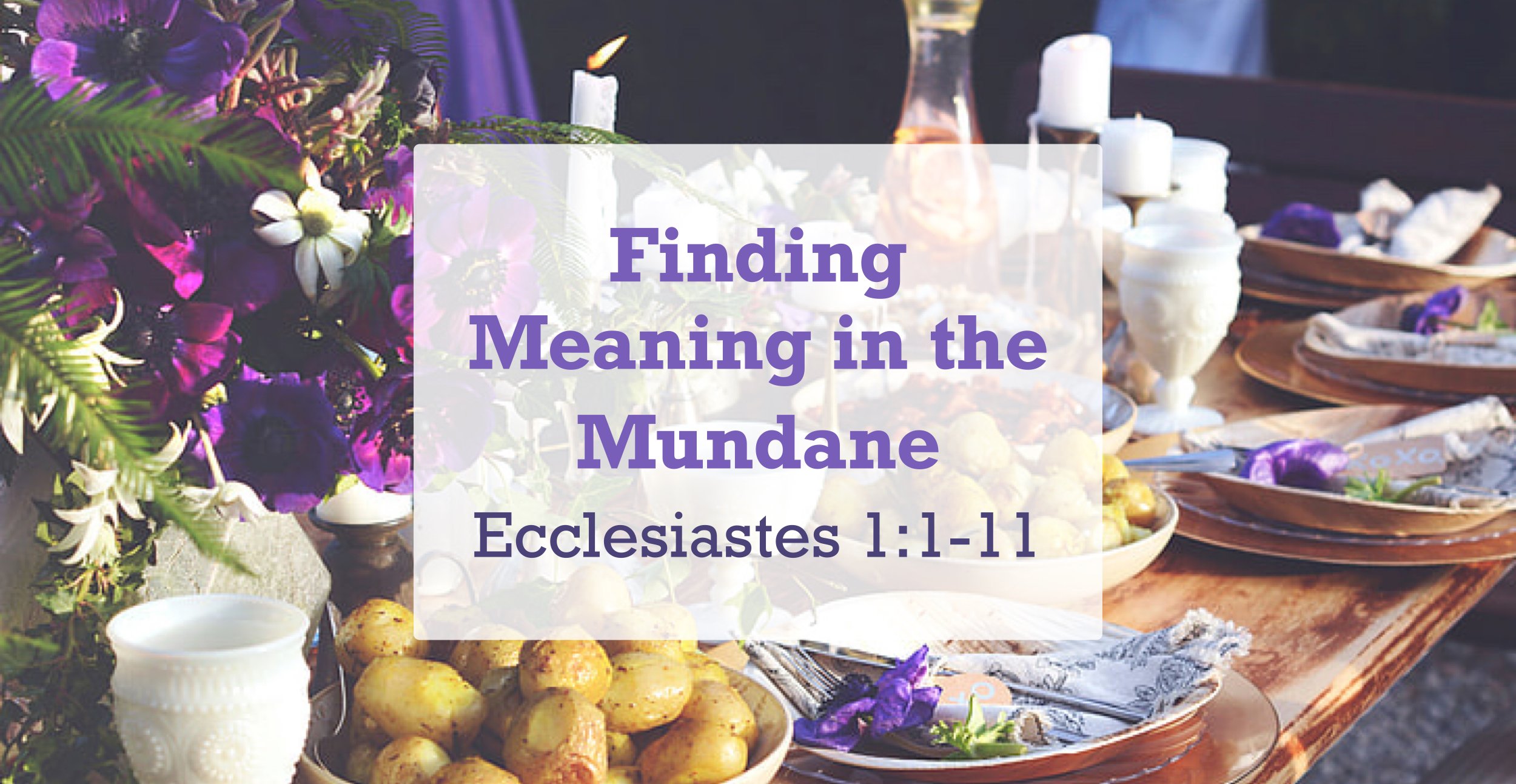Bold Yet Wise: Overcoming the Paralysis of Risk
Big Idea
Boldness and wisdom must coexist as we navigate life's uncertainties.
Worshiping with our church family is a remarkable experience—a time of fellowship, encouragement, and shared purpose. As believers, we navigate the challenges of life, often confronted with the question: Is taking a risk worth it? In this blog post, we delve into the wisdom of Ecclesiastes 11:1-6, exploring the art of being bold yet wise risk-takers.
Three Responses to Risks:
Risking it All:
Some individuals thrive on the thrill of adventure and impulsively embrace risks. Perceived as impulsive, they often make quick decisions with minimal consideration of potential outcomes. While this approach may seem reckless, some individuals can assess risks swiftly and make informed choices.
Never Risking Anything:
Others avoid risks altogether, only taking them if absolutely necessary. This cautious approach stems from a desire for guaranteed outcomes and a fear of potential loss. Seen as resistant to change, these individuals find comfort in a predictable, consistent lifestyle.
Wise Risk-Taking:
The ideal approach, combining elements of the first two, involves being bold yet wise in decision-making. This category seeks a middle ground, willing to take risks but only after careful consideration and vetting. The searcher in Ecclesiastes encourages us to embody this approach, advocating for boldness tempered with wisdom.
Wisdom in Risk-Taking:
Imagery in Ecclesiastes 11:1:
The passage employs vivid imagery, urging us to "send out your bread upon the waters." Two interpretations are offered: one for business owners involved in sea trade and another for those with resources to share. The underlying principle remains the same—be bold, take risks, and expect a fruitful return, even if not immediate.
Proverbs Reinforcing Wisdom in Generosity:
Proverbs 22:9, Proverbs 19:17, Deuteronomy 15:10, and Luke 6:38 emphasize the blessings of generosity and giving to the poor. The searcher encourages us to take risks by generously helping others, believing that such actions will bear fruit in due time.
Knowledge for the Paralyzed:
Knowing the Laws of Nature:
Understanding the laws of nature can paralyze us, preventing action when faced with potential risks. The example of rain clouds and falling trees illustrates how our knowledge of natural laws can hinder bold decisions.
Waiting for the Perfect Time:
The desire for an ideal moment can lead to inaction, as illustrated by farmers waiting for the perfect conditions to sow and reap. Sometimes, waiting for the perfect time becomes a paralyzing factor, preventing us from seizing opportunities.
Uncertainty About God's Plan:
Lack of knowledge about God's plan can be paralyzing, as seen in Ecclesiastes 11:5. Trusting God even when His plan is unclear requires faith and the willingness to take risks despite uncertainty.
No Guaranteed Results:
The fear of unknown outcomes often prevents us from taking risks, as highlighted in Ecclesiastes 11:6. Farmers, who sow seeds without guaranteed results, exemplify the necessity of faith in the face of uncertainty.
Examples of Bold Yet Wise Risk-Taking:
Parable of the Sower (Matthew 13:3-9):
The sower takes the risk of scattering seeds, recognizing that some will fall on fertile ground while others may not. This parable illustrates the importance of bold yet wise risk-taking in sharing the message of faith.
King Solomon's Ships (1 Kings 10):
King Solomon engages in sea trade, taking calculated risks by owning multiple ships rather than putting all trust in one. This example emphasizes the wisdom in diversification to mitigate potential losses.
Parable of the Talents (Matthew 25:14-20):
The servants who invest their talents wisely, taking risks for growth, are rewarded. This parable underscores the importance of boldness in using our gifts while exercising wisdom in their stewardship.
Conclusion:
The searcher in Ecclesiastes challenges us to evaluate our approach to risk-taking. Are we paralyzed by our knowledge, waiting for the perfect time, unsure of God's plan, or fearing the lack of guaranteed results? Boldness and wisdom must coexist as we navigate life's uncertainties. By learning from biblical examples and embracing a mindset of bold yet wise risk-taking, we can impact our lives, marriages, families, churches, and nations positively. Let us break free from the paralysis of indecision and, instead, be intentional in our pursuit of bold and wise risk-taking for the glory of God.
Small Group Questions:
How would you describe your approach to taking risks? Are you more inclined to take bold leaps, avoid risks, or strike a balance between boldness and caution?
Reflect on a specific risk you've taken in the past. What factors influenced your decision, and what were the outcomes? How does this experience align with the concept of being a wise risk-taker?
In your opinion, what role does faith play in overcoming the paralyzing effect of uncertainty, as discussed in the blog post? Share a personal example if applicable.
Discuss the imagery in Ecclesiastes 11:1 and the two interpretations presented in the post. How can these illustrations guide our understanding of being bold yet wise risk-takers?
Explore the impact of knowledge on decision-making. How can an awareness of natural laws both inform and potentially hinder our ability to take risks? Share examples from your own life.
Consider the examples of bold yet wise risk-taking from the Bible (e.g., the Parable of the Sower, King Solomon's ships, Parable of the Talents). How do these stories inspire and guide us in navigating risks today?
How can we encourage and support one another in our small group to step out in faith and take wise risks in various aspects of our lives? Share practical ideas and commitments.
If you want to learn more about how to take risks with wisdom as you pursue Christ, Shepherd Thoughts exists to help you live out your faith. If you or a friend needs support or resources to love God and love others more, please reach out to us today. We’d love to help.





















